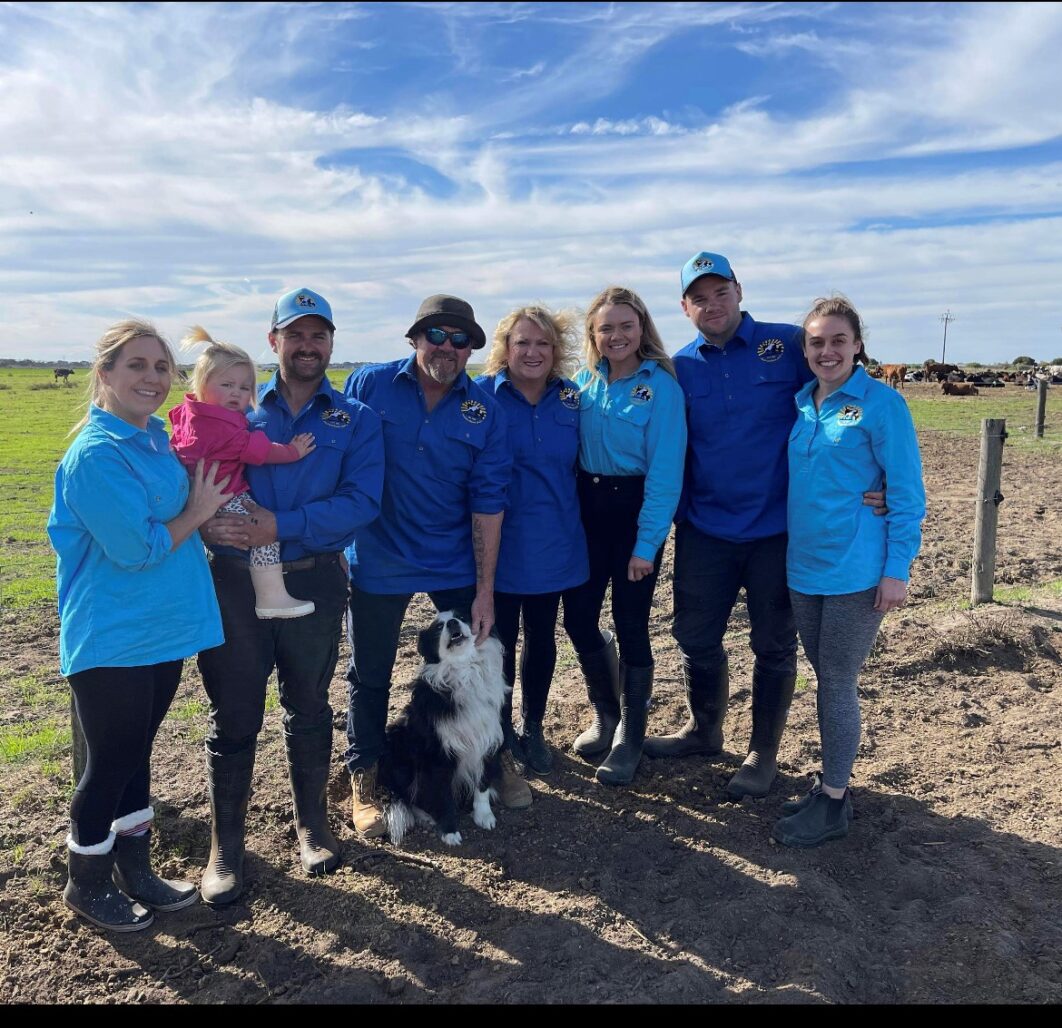Third generation Adelaide Hills dairy farmer Mark Chandler has an impressive operation, milking 500 cows all year round in his 30-aside swing-over Herringbone dairy and delivering milk to his processor, Udder Delights, in his own Mulgundawa Dairy tanker.
Mark has 3,000 acres of land in total between land owned and leased, with 500 acres under irrigation, which guarantees feed for his cows and shores up milk production.
It’s all part of a growth plan that Mark and his wife Jenny have been investing in, to set the business up for their children, three of whom are working fulltime on the farm as generation four.
“Back in the day, my grandfather was milking around 50 to 80 cows. That went up to about 180 cows with my parents, and then when I came back home after working off the farm, we ramped it up to 300 cows, and now we’re at 500,” Mark said.
“A smaller farm made sense for my grandparents who were sole owners, then my mom and dad were also sole owners. But now with three of our kids working full time on the farm and starting their own families, there’s extra pressure on the cash flow.
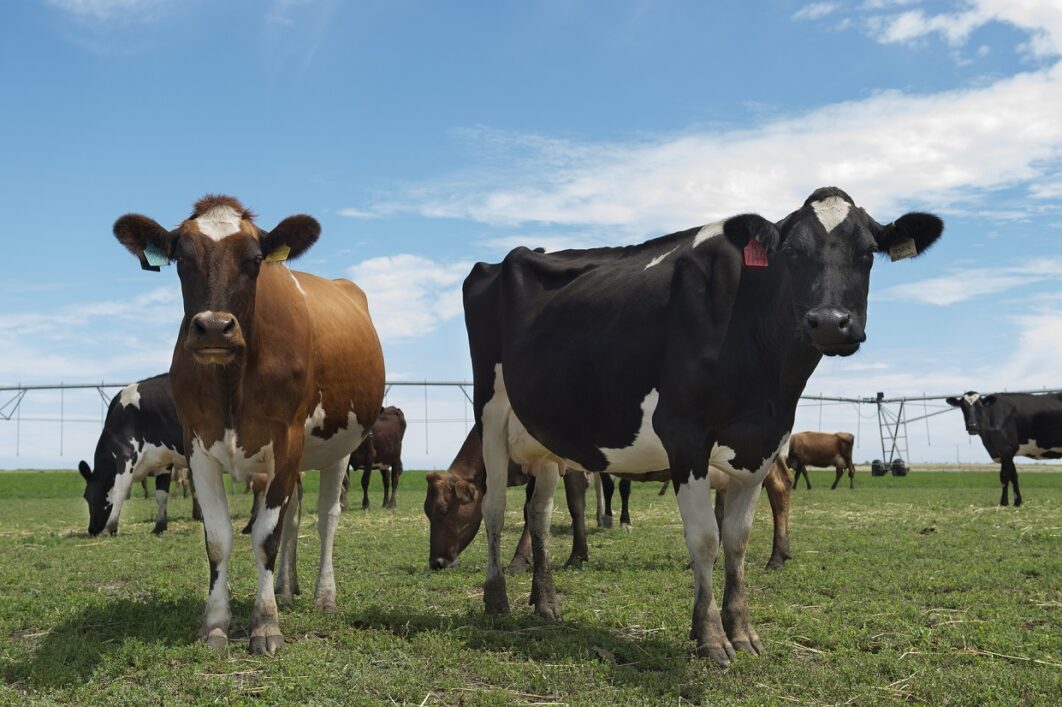
“We took the opportunity to set in motion a growth plan, and we’ve structured up according to the requirements of our processor, Udder Delights, who we’ve been with for about 18 years.”
A recent change that has boosted production has been converting to conventional farming from organic production. “We were organic for about 15 years, but it evolved to the point where it just wasn’t sustainable anymore. The conventional milk price is actually better than the organic price,” Mark said.
“It was a tough day to give up on organic production after 15 years of hard work, but we had to look at it from a financial perspective. We had a good conversation with Udder Delights – we’ve always had a strong relationship with them – and they were supportive. We managed the changeover quite easily.”
Mark said the change to conventional farming was already reaping rewards in terms of milk quantities and quality.
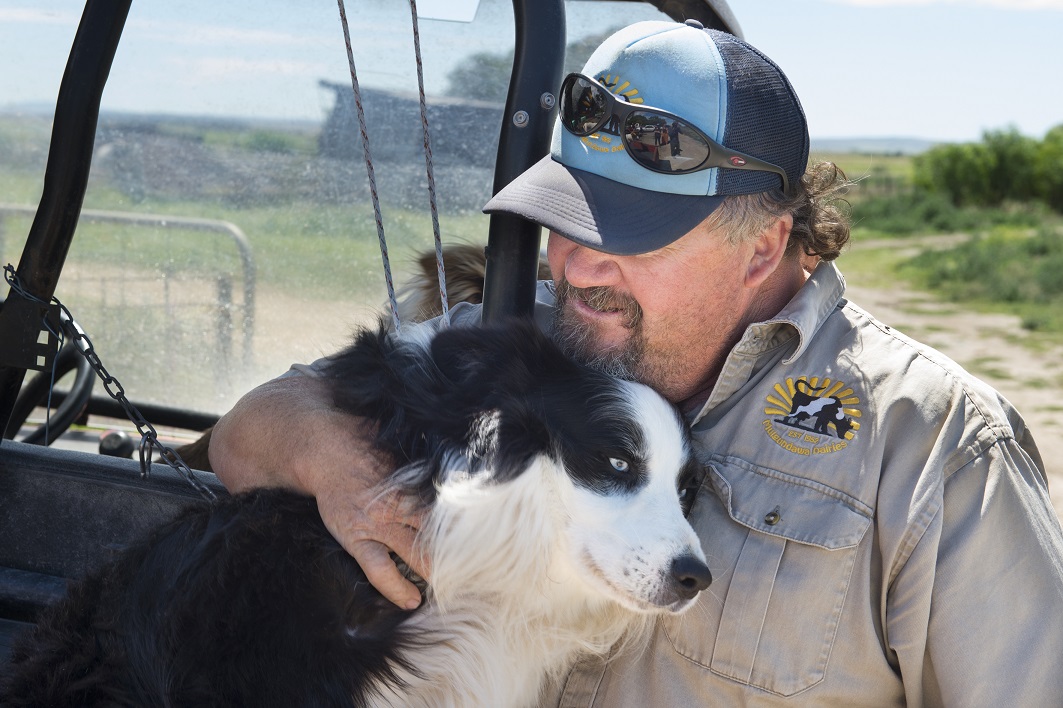
“We’ll be going from two and a half million litres of milk in our first year of conventional, to three million litres, and then in another two to three years, we should be around four to five million litres, and we’re milking the same number of cows,” he said.
“We’ll be increasing our milk production from an average of 12 to 13 litres per cow per day up to 20 litres plus per cow.
“And when we were running the farm organically, controlling cell counts was extremely hard. We found breeding more stock and putting more young cows into our herd and moving on a few older cows helped to stabilise the cell count.
“But since converting to conventional farming, we’ve seen cell counts drop already. Six months ago, we were around 250,000 to 300,000. Our last test was 180,000, so we’ve halved it.”
Mulgundawa Dairy follows a paddock to plate philosophy and developed an organic cheese in partnership with Udder Delights called ‘Divine Dairy Organic Camembert’, which won several cheese awards.
That brand is now being phased out and replaced by a new product, ‘Udder Delights Mulgundawa Dairy Single Herd Triple Cream Brie’, which was prompted by the dairy’s conversion from organic to conventional farming.
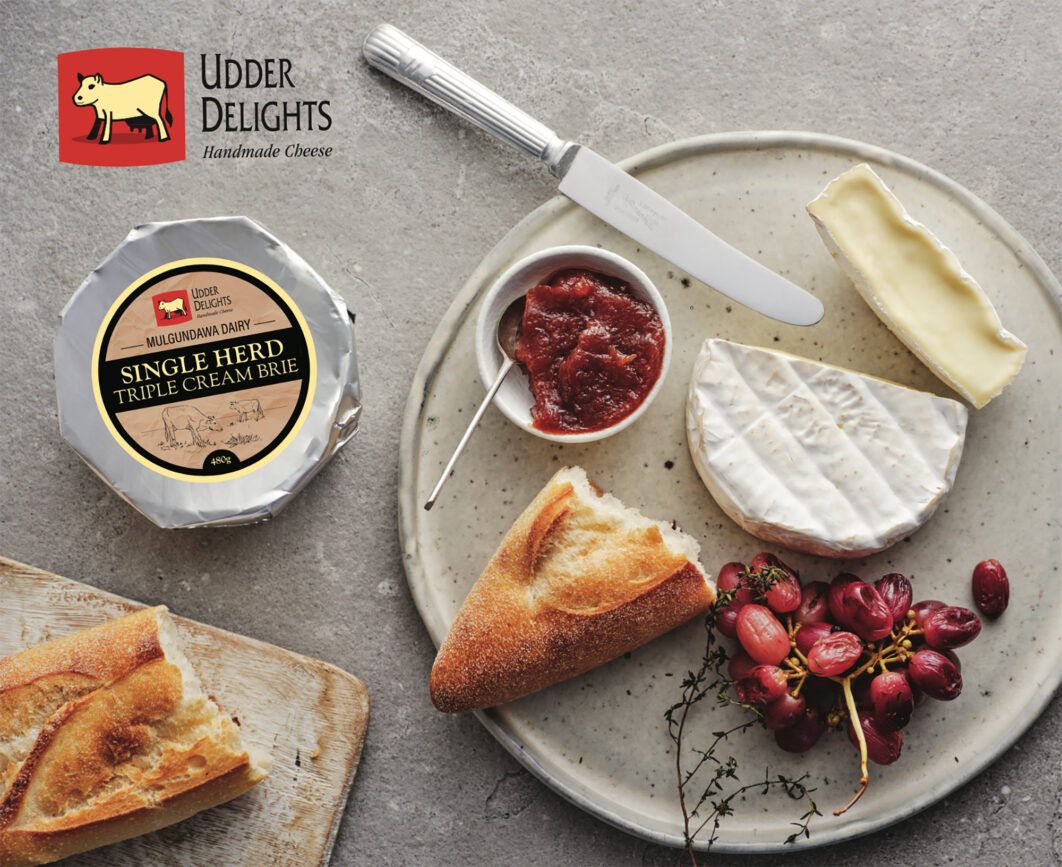
“it’s a very good-looking product and I can’t wait to see it on shelves,” Mark said.
“We’ve always had a good relationship with Udder Delights. They’ve been extremely approachable, and the flow of communication is excellent.
“Since the beginning, we’ve had a good partnership in relation to discussing milk prices. They don’t dictate the price, but are proactive in talking to us about it, and tweaking it from year to year, to ensure the price is sustainable for both of us. They’re always aware of the cost of living and production cost pressures.”
Mark and his parents built the dairy about 25 years ago and have improved it over time, with automated cup removers and other automation, including vat cleaning and machine cleaning.
Mark and Jenny’s three children work full-time in the dairy with a couple of casual workers assisting with milking.
“The days are gone where I expect people to work from the crack of dawn to darkness,” Mark said.
“I understand generational change and if our kids want to work 38 to 45 hours a week, I’m fine with that. It has taken a bit of time to adjust, but we’re all on board and we work to a roster system now. They all understand that a commitment to a family farm is huge.
“At the end of the day, I tell them that I’m only a custodian of this family farm, and then they’re going to be the custodians when they take it on. It will be their job to pass it on to the next generation is a healthy way.”
Mark said a factor that must change in the industry to keep young people interested in dairy farming is milk prices.
“I’ve got milk receipts from Mum and Dad back in the seventies where they were getting 32 to 35 cents a litre. Now 50 years on and we’ve only doubled the price, and living expenses have tripled or quadrupled, or more,” Mark said. “It has to be a sustainable and healthy industry for kids to want to stay in it.”
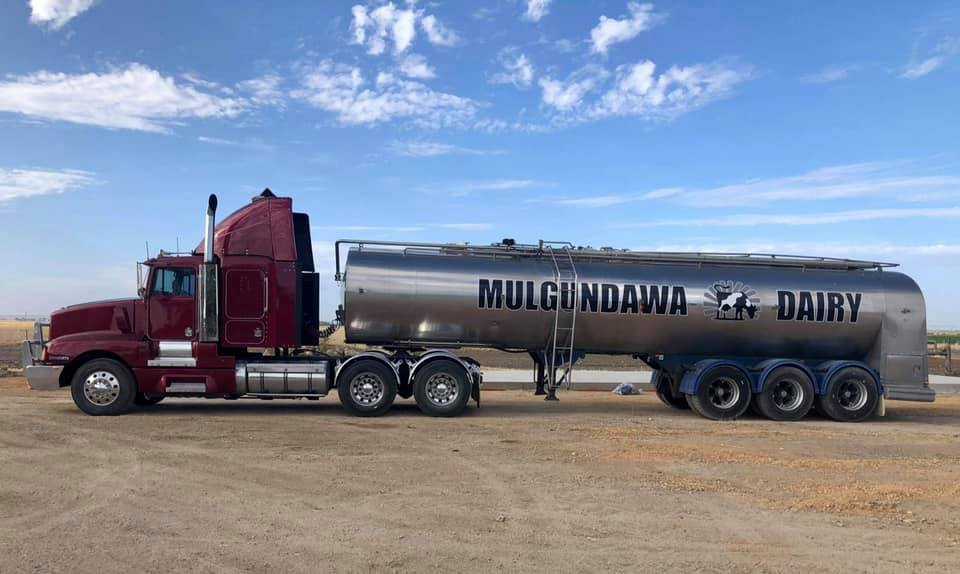
To boost Mulgundawa’s sustainability, Mark and Jenny invested in a milk tanker for milk deliveries a few years ago.
“That’s factored into the delivery price of what we get per litre, which helps our profitability,” Mark said. “And it’s helpful to the processor because they don’t have to worry about the transport.”
“We do milk deliveries every two to three days. We’ve got plenty of storage, so we keep it here until Udder Delights has space. And it’s good for me to have a bit of time away from the farm. I can jump on the truck and go for three hours with my dog Charli and deliver the milk. I find that relaxing.”
Mulgundawa’s truck is used for other jobs on the farm, including grain production, as the farm grows about 800 tonnes of grain per season, which is feed for the herd.
In recent years, Mark and Jenny have invested in 500 acres of irrigation, which guarantees a healthy pasture.
“Seasonal weather is out of my control, but I’m in control with my irrigation during the growing season, which is August through to March. It doesn’t rain much during summer, but I can keep my feedstocks at a high level for six months due to my irrigation, and that shores up my milk production,” Mark said. “It was a huge investment to set it up, but it’s worth it.”
Mark said it was important to have good experts around to offer advice, to enable sustainable growth. “I’ve got a good broker and a very good accountant, and other people around me that help me move forward and make good decisions,” Mark said.
“We’ve revalued the property three or four times over the last six years, and because of the interest in land and the sales around the place, the value of the property has doubled in six years.
“That’s given us good grounding and borrowing capacity to upgrade some expensive machinery, to help us move forward in production and expand the farm to suit our family.”
